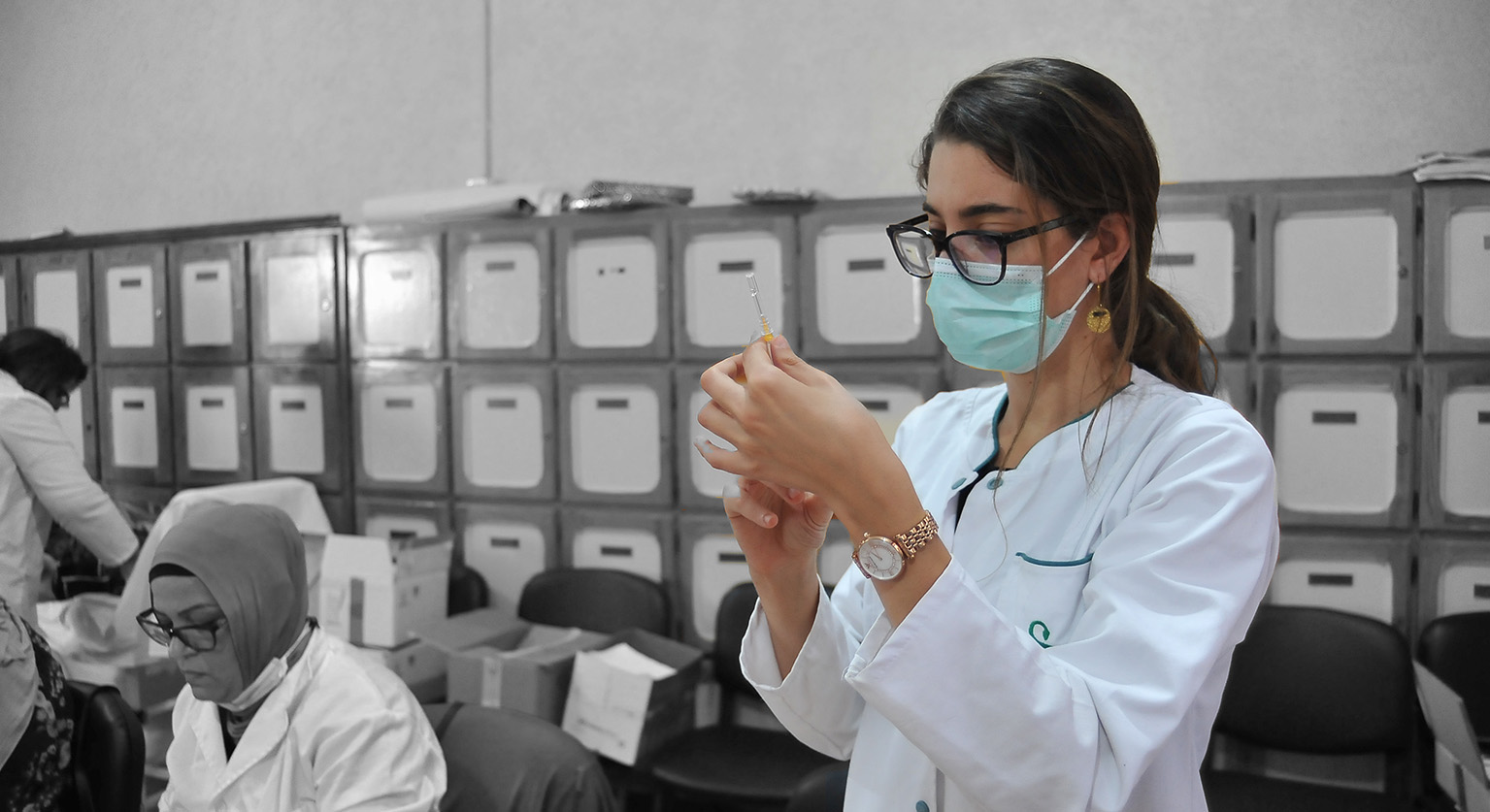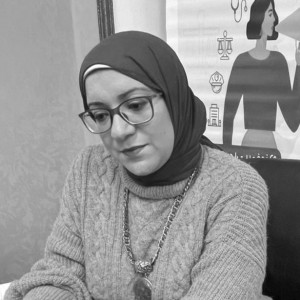
Structural Issues Hampering the Economic Progress and the Conditions of Women in the Arab World

Structural Issues Hampering the Economic Progress and the Conditions of Women in the Arab World
Do new economic alternatives provide women with long-term opportunities? - Mai Saleh
Undoubtedly, ensuring the sustainability of economic growth, whether at the individual or national level, can only be achieved with the participation of all groups of society and using the productive power of women in various fields of work. It requires addressing the gender gap, focusing on societal concepts that affect the status of women and the implicit and explicit bias in identifying opportunities, tasks, and gender roles in the public and private spheres. Protection systems also need attention to enhance the concept of social justice.
Despite the international agreement that gender equality cannot be achieved without economic justice, neoliberal and patriarchal regimes worldwide neglect the need to adapt economic policies to avoid harming women and girls. Structural and systematic policies and alternatives favor the wealthiest and most influential groups, mainly men. As a result, the great majority of people around the world suffer directly. These policies fuel inequality at all levels, leaving women and girls without proper economic empowerment tools.
In broad terms, women’s economic empowerment should provide access and control over various resources, markets, and public services. It also entails that women should have access to important positions, participate in economic decision-making, enhance their financial independence, and improve their participation rate within the labor force.
Alternatives Carrying Opportunities and Challenges
The economic structure varies across the region, which impacts both men’s and women’s employment. Women’s employment in the Arab world typically focuses on the agricultural and tertiary sectors. In contrast, industrial sector jobs are generally dropping due to rentier economic systems. On the other hand, the gender gap is widening in the entrepreneurship sector. However, it has become critical to analyze new data and investigate various economic alternatives that may impose themselves on the labor market to encourage economic growth. For instance:
First, the green economy and the green transition: According to the ILO report, more global warming will likely lead to global productivity losses, equivalent to 82 million full-time jobs in 2030. In this context, the shift towards a green economy - of which social justice is one of its most important criteria - may represent a good opportunity. Women and girls have become more interested in enrolling in educational programs focusing on technology and renewable energy.
Women and girls, who make up the majority of graduates of colleges of science, technology, engineering, and mathematics, are at the core of green transitions. For example, the green economy is expected to provide 500,000 new jobs for women. In Egypt, however, this opportunity depends on the readiness and will of various industrial sectors to make a fair transition.
Second: solidarity and participatory economics, especially in the agricultural sector.
Heat stress will also impact millions of women, who make up the majority of workers in the agricultural sector. More than 3 billion people who suffer from extreme poverty live in rural areas, where 80% depend on agriculture for their livelihood and work. Agriculture provides a living for over a third of the world’s women workers working under harsh conditions. However, women’s ownership and acquisition of agricultural land rates are decreasing while their daily incomes are also decreasing compared to men. In addition, they are vulnerable to all forms of violence.
Most Arab administrations are choosing micro-financing as a quick remedy to eradicate poverty. However, this approach did not change rural women’s economic and social conditions. Hence, thinking about the work of collective cooperatives is considered a lifesaver for women. The cooperative movement is a democratic, popular movement based on interdependence, complementarity, and sharing experiences among individuals. It is a voluntary way to achieve and meet economic and social needs, fairly distribute resources, and manage medium-sized projects that promote solidarity rather than competitiveness.
Third: Digital Economy is one of the forms of remote working that started to appear several years ago but began to mainstream with the COVID-19 pandemic and after. The commodification of information is considered the digital economy’s central pillar, converting text, visual, or audio content into products and thus converting messages and services into money.
In Africa, only 12% of women can access the Internet. Thus, bridging the digital gap remains necessary to ensure gender equality in developing digital infrastructure. It would allow women to obtain better incomes in light of the digitization of work and the spread of e-marketing services. In addition to improving and increasing opportunities for women and girls to use technology, there is a need for a universal social security scheme for workers on digital platforms. This is in addition to data privacy and protection from cyber violence risks.
A turbulent economic context
The current socioeconomic situation in the Arab world requires changing how we engage and deal with women’s conditions in light of global transformations and shifting employment patterns due to the COVID pandemic.
Human development reports always indicate high rates of feminization of poverty and an expansion in the gender gap in accessing resources. For instance, almost one-third of poor people over 16 are women. However, the new multidimensional poverty index assesses the income or pay gap and the equity of access to health, housing, education, and other services. As the global economic crisis weighs on societies in general, and women in particular, and in light of the high rates of daily inflation, sexual and reproductive health services are expected to decrease and their costs to increase. A decrease in emergency services for survivors of gender-based violence and an increase in litigation in cases of violence and personal status are also expected.
In 2023, more than 54% of countries aim to cut social protection expenditures as part of new austerity measures. These countries either provide minimum assistance to mothers and children or do not provide any help, all of which are different forms of economic violence against women. In this context, the discourse around development and empowerment remains unfulfilled if we do not mainstream gender equality and pressure to build robust social protection systems that include: comprehensive health care, protection from violence, fair and equitable access to services, and investments in care infrastructure, as well as removing obstacles that prevent women from accessing gender justice in a sustainable and human rights context and under a democratic and developmental economic model.
Ensure decent work and social protection for women
In all cases, decent work is a fundamental feminist demand to address gender-based economic violence. It was developed as a result of global austerity measures. It reassesses women’s employment, calling to abolish the patriarchal wage structure. It also addresses discriminatory stereotypes, social norms, and prevailing structural barriers that may discourage women and girls from enrolling in historically male-dominated fields of study and career paths. Decent employment is not only focused on employment creation. Instead, it is about preserving and promoting workers’ rights while simultaneously developing legal structures and extensive social protection systems and the opportunity to organize and create trade unions.
Mai Saleh - Women, Work, and Economic Rights Program Manager
New Woman Foundation – Egypt
References
النساء والاقتصاد الرقمى ، البنك الدولى ، 2021
دانا عابد – فاطمة كيهلير ، بطش التقشف : خيارات السياسات الاقتصادية السائدة هى شكل من اشكال العنف القائم على النوع الاجتماعى ، منظمة اوكسفام ، 2022
Recent publications

